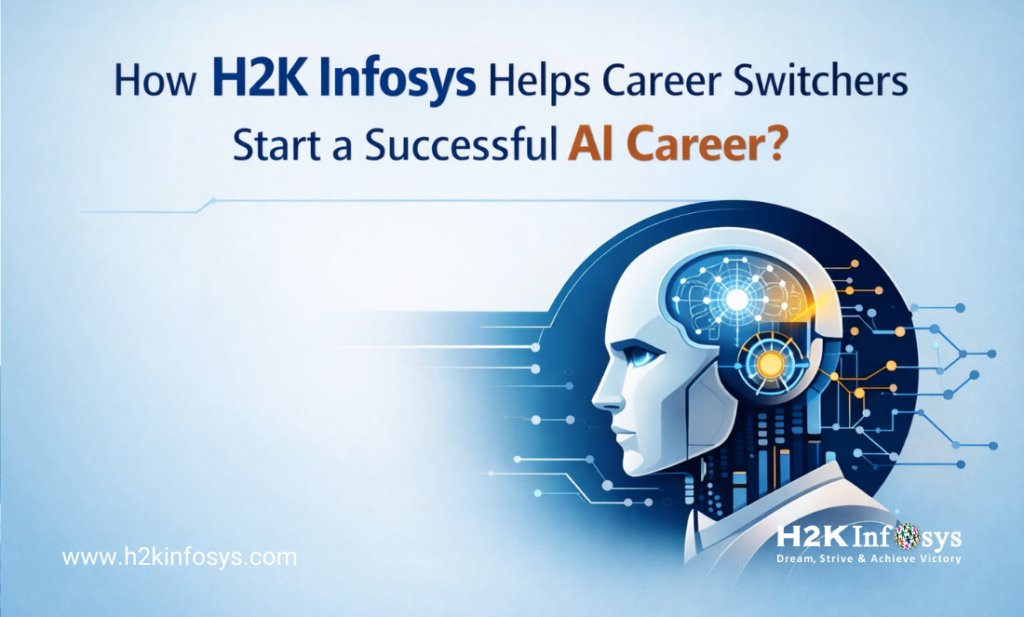DevOps has revolutionized the way software development and IT operations work together. By breaking down traditional silos, DevOps encourages faster development cycles, continuous integration, and continuous delivery, resulting in high-quality software and rapid innovation. If you are a beginner eager to start your DevOps journey, understanding the key DevOps tools is essential.
In this blog, we will explore the top DevOps tools every beginner should know about, helping you gain practical knowledge that aligns with industry needs. Whether you want to pursue DevOps training online or seek a DevOps training and certification program, mastering these tools is a must.
Let’s dive into the world of DevOps automation tools and understand how each can boost your career in DevOps.
Why Learning DevOps Tools is Crucial for Beginners
Before we list the DevOps Tools, it’s important to know why these tools matter:
- Automation: DevOps emphasizes automating manual tasks to reduce errors and speed up delivery.
- Collaboration: Tools enable smooth collaboration between developers and operations teams.
- Continuous Delivery: They support continuous integration (CI) and continuous deployment (CD) to release code faster.
- Monitoring: Real-time monitoring helps identify and fix issues proactively.
According to industry surveys, organizations that implement DevOps practices with the right DevOps Tools achieve deployment frequency 30 times higher and recovery times 50% faster compared to traditional methods. Therefore, learning these tools enhances your employability and helps you excel in a DevOps online course or DevOps bootcamp online.
Top DevOps Tools Every Beginner Should Know

1. Git – Version Control Tool
What it is: Git is a distributed version control system that helps developers track changes in source code during software development.
Why beginners should learn it: Every DevOps pipeline starts with code, and Git manages that code effectively. It enables collaboration by allowing multiple developers to work on the same project without conflicts.
Real-world use: Companies like Google, Microsoft, and Facebook use Git to manage large codebases.
Basic example:
bash git clone https://repository-url.git # Clone a repo
git add file.txt # Stage changes
git commit -m "Update file" # Commit changes
git push # Push to remote repository
2. Jenkins – Continuous Integration and Delivery
What it is: Jenkins is an open-source automation server used to automate the build, testing, and deployment of software projects.
Why beginners should learn it: Jenkins helps implement CI/CD, which are foundational to DevOps Tools. It integrates with numerous plugins to connect with other tools.
Example use: Automatically building and testing your code every time a developer pushes changes to the repository.
Basic pipeline example:
groovy pipeline {
agent any
stages {
stage('Build') {
steps {
sh 'make build'
}
}
stage('Test') {
steps {
sh 'make test'
}
}
stage('Deploy') {
steps {
sh 'make deploy'
}
}
}
}
3. Docker – Containerization Platform
What it is: Docker is a platform for packaging applications and their dependencies into containers. Containers ensure that software runs reliably when moved from one environment to another.
Why beginners should learn it: Docker simplifies deployment and environment consistency, which is critical in DevOps workflows.
Industry use: Netflix and Spotify use Docker containers to deploy applications rapidly and scale efficiently.
Basic Dockerfile example:
dockerfile FROM node:14
WORKDIR /app
COPY . .
RUN npm install
CMD ["node", "app.js"]
4. Kubernetes – Container Orchestration
What it is: Kubernetes is an open-source system for automating deployment, scaling, and management of containerized applications.
Why beginners should learn it: Once applications are containerized, Kubernetes helps manage multiple containers across a cluster of machines.
Use case: Managing hundreds or thousands of containers for a cloud application.
Basic example:
yaml apiVersion: v1
kind: Pod
metadata:
name: nginx-pod
spec:
containers:
- name: nginx-container
image: nginx:latest
ports:
- containerPort: 80
5. Ansible – Configuration Management and Automation
What it is: Ansible is an open-source automation tool for configuration management, application deployment, and task automation.
Why beginners should learn it: It uses simple YAML files called playbooks, making it easy to automate repetitive IT tasks without complex scripting.
Real-world example: Automating the installation and configuration of software on hundreds of servers.
Playbook snippet:
yaml hosts: webservers
tasks:
- name: Install nginx
apt:
name: nginx
state: present
6. Terraform – Infrastructure as Code (IaC)
What it is: Terraform allows users to define and provision data center infrastructure using a declarative configuration language.
Why beginners should learn it: Infrastructure automation is crucial in DevOps. Terraform helps manage infrastructure lifecycle efficiently.
Example: Creating cloud resources like virtual machines, networks, and storage without manual setup.
Terraform snippet:
hclprovider "aws" {
region = "us-west-2"
}
resource "aws_instance" "example" {
ami = "ami-0c55b159cbfafe1f0"
instance_type = "t2.micro"
}
7. Nagios – Monitoring and Alerting
What it is: Nagios is a powerful monitoring system that helps track system health, network protocols, services, and server resources.
Why beginners should learn it: Proactive monitoring enables quick detection of issues to prevent downtime.
Example: Monitoring CPU usage, disk space, and network traffic for production servers.
8. Prometheus & Grafana – Monitoring and Visualization
What they are: Prometheus is a time-series database monitoring system, and Grafana is a visualization tool that displays metrics collected by Prometheus.
Why beginners should learn them: Together, they provide real-time monitoring and insightful dashboards for system health.
How to Start Learning These DevOps Tools
- Enroll in a DevOps online training: Choose a course that offers practical labs and real-world projects.
- Set up your own projects: Try creating CI/CD pipelines with Jenkins, containerize apps with Docker, and deploy with Kubernetes.
- Use online sandboxes: Practice Terraform scripts or Ansible playbooks using free cloud accounts or local virtual environments.
- Join a DevOps bootcamp online: Bootcamps often offer a faster, hands-on approach to learning the tools.
- Get certified: A recognized DevOps training and certification improves your job prospects.
Benefits of H2K Infosys DevOps Training Online
- Comprehensive curriculum covering all key DevOps automation tools.
- Hands-on labs and real-time projects to reinforce learning.
- Experienced instructors with industry exposure.
- Placement assistance with DevOps training with placement support.
- Flexible schedule ideal for working professionals.
- Updated content matching the latest industry trends.
Conclusion
Mastering these top DevOps tools gives you a competitive edge in the IT industry. They help automate processes, improve collaboration, and speed up software delivery. Whether you choose to enroll in a DevOps course online or attend a DevOps bootcamp online, understanding these tools is the first step to becoming a skilled DevOps professional.
Ready to launch your career? Join H2K Infosys’ best DevOps training online program and start mastering the DevOps Tools that top employers demand.
Key Takeaways
- DevOps tools like Git, Jenkins, Docker, Kubernetes, Ansible, Terraform, and monitoring tools are essential for beginners.
- These tools help automate and streamline software development and deployment.
- Practical knowledge of these tools increases job opportunities in the DevOps field.
- Enrolling in structured DevOps training online ensures hands-on experience and certification.
- H2K Infosys offers a complete DevOps training and placement program designed to launch your DevOps career.


























